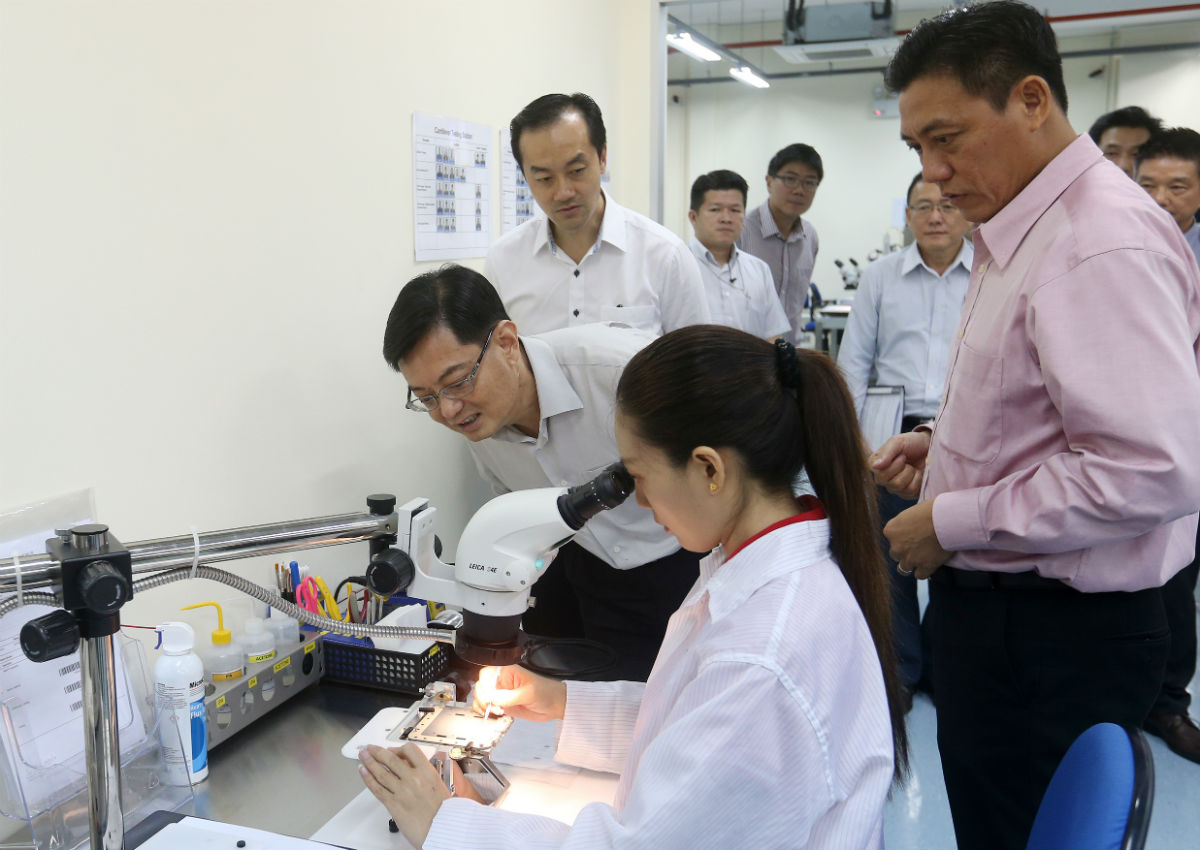A more targeted approach in helping companies restructure and transform will have a bigger impact in the long term than using broad- based measures, Finance Minister Heng Swee Keat said yesterday.
Mr Heng, who was part of a panel discussing the Budget on Channel NewsAsia’s Ask The Finance Minister programme last night, said broad-based schemes such as the popular Productivity and Innovation Credit (PIC) have played a role in raising awareness about the importance of productivity.
But the next stage of restructuring will involve industry-specific measures which aim to be more effective in improving efficiency and processes across entire sectors, he added.
“Going forward, we need to look at more targeted measures that will achieve a bigger impact… More targeted measures produce better results for companies.”
The PIC scheme encourages small and medium-sized enterprises (SMEs) to spur investment in productivity by offering them cash and tax deductions for costs like worker training, automation and research.
Mr Heng announced in his maiden Budget speech last Thursday that cash rebates under the PIC scheme will be decreased this year, as the Government seeks to replace broad-based measures with more targeted support for firms.
He added that the PIC scheme will expire in the 2018 year of assessment, as scheduled.
Responding to concerns raised by SMEs during last night’s programme about the winding down of the PIC, Mr Heng noted that firms still have many other sources of help to tap.
The Government will work closely with industry trade associations and companies to ascertain the needs of each sector, he added.
Veteran unionist and Nominated MP K. Thanaletchimi, who was also a member of the panel on last night’s programme, said labour productivity has stayed flat in recent years despite the range of schemes available to companies.
This is a sign that a more targeted approach is needed, Ms Thanaletchimi added.
The panel also covered a range of other issues surrounding the recent Budget, including Singaporeans’ concerns about their job prospects, given the economic slowdown, as well as the move to cap personal income tax reliefs at $80,000, which has stirred up some debate.
The limit will be set at $80,000 from Year of Assessment 2018, and is expected to raise additional tax revenue of $100 million a year.
Under the new cap, some high- income working mothers may end up paying more tax.
Mr Heng said 99 per cent of tax-resident individuals will not be affected, and 90 per cent of female taxpayers claiming the Working Mother’s Child Relief are expected to continue to claim it fully.
The move was made “in the interest of ensuring our tax system remains progressive” and “was not targeted at any particular group”.
The tax burden in Singapore is also low compared with “almost anywhere in the world”, the minister added.

This article was first published on March 29, 2016.
Get a copy of The Straits Times or go to straitstimes.com for more stories.






